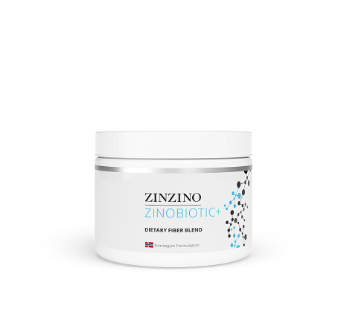
Introduction
Gut health plays a crucial role in overall well-being, affecting everything from digestion to immunity and even mental health. Despite its importance, many people suffer from poor gut health without realizing it. Your gut is home to trillions of bacteria, both good and bad, and maintaining a balance between them is essential for optimal health.
We will be exploring the silent signs of an unhealthy gut and effective ways to restore balance for better digestion, immunity, and overall health.
Silent Signs of an Unhealthy Gut
1. Digestive Issues (Bloating, Gas, Constipation, or Diarrhea)
Frequent digestive discomfort is a major indicator that your gut bacteria may be out of balance. If you often experience bloating, excessive gas, or irregular bowel movements, your gut microbiome might need some attention.
2. Frequent Fatigue and Low Energy
An imbalanced gut can affect your ability to absorb essential nutrients, leading to low energy levels and fatigue. Poor gut health may also contribute to sleep disturbances due to the gut-brain connection.
3. Unexplained Weight Changes
If you’re gaining or losing weight without significant changes in diet or activity levels, your gut bacteria may be playing a role. An unhealthy gut can affect metabolism and how your body stores fat.
4. Skin Problems (Acne, Eczema, or Rashes)
Your gut and skin are closely linked. Inflammation caused by an imbalanced gut can manifest as acne, eczema, or other skin issues.
5. Weakened Immune System
A significant portion of your immune system resides in the gut. If you find yourself catching colds and infections frequently, it may be a sign that your gut microbiome isn’t functioning optimally.
6. Sugar Cravings and Poor Food Choices
Bad gut bacteria thrive on sugar and processed foods. If you constantly crave sweets, it might be due to an overgrowth of harmful bacteria.
7. Mood Swings, Anxiety, and Depression
The gut is often called the “second brain” because it produces neurotransmitters like serotonin, which regulate mood. An unhealthy gut can contribute to anxiety, depression, and mood swings.
How to Improve Your Gut Health
1. Eat More Fiber-Rich Foods
Fiber acts as food for beneficial gut bacteria. Include high-fiber foods such as:
- Fruits and vegetables (bananas, apples, carrots, spinach)
- Whole grains (oats, quinoa, brown rice)
- Legumes (beans, lentils, chickpeas)
2. Include Probiotics and Fermented Foods
Probiotics are live bacteria that promote a healthy gut. Consume foods rich in probiotics, such as yoghurt (with live cultures), etc.
3. Stay Hydrated
Water helps maintain the mucosal lining of the intestines and promotes a balanced gut environment. Aim for at least 8 glasses of water per day.
4. Reduce Processed Foods and Sugar Intake
Processed foods and refined sugars feed bad bacteria and contribute to inflammation. Replace sugary snacks with healthier options like nuts, seeds, and fresh fruits.
5. Manage Stress Levels
Chronic stress negatively affects gut health by disrupting the balance of gut bacteria. Practice stress-reducing activities such as:
- Meditation
- Deep breathing exercises
- Regular physical activity
6. Get Enough Sleep
Poor sleep can disrupt gut bacteria and lead to digestive issues. Aim for a minimum of 7 hours of quality sleep each night.
7. Consider Taking a Prebiotic or Probiotic Supplement
If your diet lacks sufficient probiotics, consider taking a high-quality probiotic supplement such as Zinobiotics to restore gut balance. Prebiotics, found in foods like garlic, onions, and asparagus, also help nourish good bacteria.
8. Exercise Regularly
Physical activity promotes gut motility and enhances the diversity of gut bacteria. Engage in moderate exercise like walking, cycling, or yoga.
Zinobiotics: Your Natural Gut Health Solution

One effective way to support your gut is by using our scientifically formulated supplement, Zinobiotics. Zinobiotics contains a blend of natural fibres that nourish good bacteria, improve digestion, and promote overall gut health. By incorporating Zinobiotics into your daily routine, you can enhance your gut microbiome and experience better digestion, energy levels, and immune function
Frequently Asked Questions about Gut Health
What are some gut health supplements?
- Gut health supplements include probiotics, prebiotics, fibre supplements, and digestive enzymes. In Nigeria, you can find probiotics in fermented foods like kunu, nono (fermented milk), and locally made yoghurts. Fibre supplements can come from psyllium husk, while prebiotics are naturally found in unripe plantains, onions, and garlic. If needed, you can also buy probiotic supplements such as zinbiotics produced by Zinzino.
How do I improve gut health naturally?
- A healthy gut starts with what you eat and how you live. Eating fibre-rich foods like okra, leafy vegetables (ugu, ewedu), and whole grains (brown rice, millet) helps with digestion. Fermented foods like ogi (pap), fufu, and iru (locust beans) introduce beneficial bacteria to your gut. Staying hydrated, exercising, and reducing stress also contribute to a balanced digestive system.
What are some gut health foods?
- Nigerian foods that support gut health include unripe plantain, beans, vegetables like bitter leaf and waterleaf, and whole grains like guinea corn and millet. Fermented foods like ogi (pap), nono, and iru help introduce healthy bacteria into your gut. Eating more fibre from foods like yam, okra, and groundnuts also keeps your digestive system running smoothly.
What are the worst foods for gut health?
- Highly processed foods, excessive sugar, and artificial additives can harm your gut. Common culprits include soft drinks, instant noodles, overly processed white bread, and deep-fried snacks like puff-puff and akara in excess. Too much alcohol, especially spirits and beer, can also disrupt gut bacteria and lead to digestive discomfort.
What are examples of gut health drinks?
- Drinks that support gut health include kunu, zobo (without excessive sugar), fermented millet porridge (fura da nono), and homemade fresh fruit juices. Herbal teas like ginger tea, bitter leaf tea, and zobo also help digestion. Simply drinking enough water daily can also improve digestion and keep things moving.
What are gut health probiotics?
- Probiotics are live beneficial bacteria that support digestion and overall gut balance. In Nigeria, they can be found in fermented foods like nono, iru (locust beans), and ogi (pap). These foods help maintain a healthy gut microbiome, improving digestion and boosting immunity. If natural sources aren’t enough, probiotic supplements are available in pharmacies.
Conclusion
Your gut health impacts every aspect of your well-being, from digestion to immunity and even mental health. By making simple lifestyle changes, you can improve gut health and prevent long-term issues. Start by incorporating fiber-rich foods, staying hydrated, reducing stress, and considering a quality supplement like Zinobiotics to give your gut the support it needs.
Are you ready to take charge of your gut health? Start making changes today and experience the benefits of a healthier gut!
